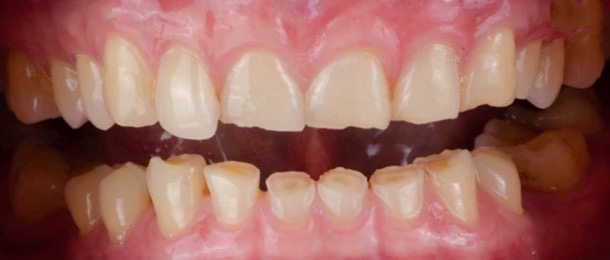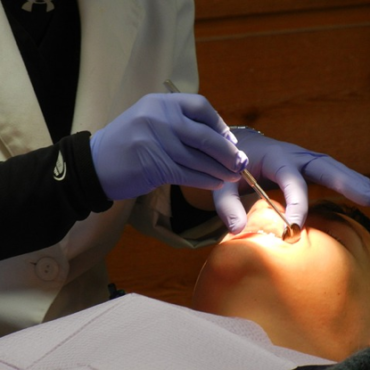Veneers aka Hollywood Smile, Worth it?
Veneers are typically a minimally invasive procedure where a thin layer of porcelain ceramic, between 0.3-0.7mm are bonded on to the teeth to improve the shape, color or even the alignment of teeth.

No-preparation (No-Prep) Veneers
Most commonly, no-prep Veneers are possible when there is minor spacing between the teeth, where the no-prep veneer would have enough thickness to be durable. Sometimes No-prep veneers may be an alternative to minor orthodontic treatment (braces)

Preparation Veneers
Most cases may require some extent of preparation, especially when the patient wants to fix some minor crowding of teeth, as an alternative to minor orthodontic treatment (Braces) as well.
Sometimes there may be a discoloration of the tooth that needs to be compensated, in those specific cases, there may need to be further preparation to mask the discoloration with a thicker veneer.

What are the different types of materials to be used?
- Feldspathic Porcelain
- Emax (lithium disilicate)
- Zirconia
- Porcelain Fused to Emax
- Porcelain Fused to Zirconia
It’s not one size fits all, we get patients asking for a specific biomaterial, which may not be appropriate for that patient. All cases differ in complexity and no two cases are the same.
Here are some of the factors in decision making:
- Bruxer (grinding teeth at night).
- Any missing teeth present
- How many shades brighter does the patient want (Natural smile VS Bright smile).
- Are there any severely discolored teeth.
Photo of worn down teeth:

Do veneers change color or shine?
No, and that’s the main difference between “Bonding” which is a normal filling material that is placed on to your teeth versus a laboratory fabricated porcelain veneer that is bonded onto the tooth.
I heard veneers gives you bad breath and inflamed gums.
One of the most important steps in making veneers is the final impression (mold) of the teeth after preparation. According to that mold, the dental laboratory will create and design the veneers. Now, if the final impression is inaccurate whether with material or digitally, the laboratory will fabricate the veneers on an inaccurate mold which will leave a space between the tooth and the veneer. This space is a haven for bacteria, where they can sit there and create cavities and gum disease which you typically see in ill-fitting veneers. Therefore, an experienced dentist or specialist (prosthodontist) is crucial for the longevity of your veneers.
How do I take care of my veneers?
Brushing and flossing is the most important, however brushing with an electric tooth brush and utilizing a water flosser is more effective in removing any debris and bacteria in order to maintain a proper oral hygiene.
What if I’m a bruxer, I grind my teeth at night.
A well-designed occlusal guard is crucial to maintain the integrity of the veneers. An occlusal guard is customized clear acrylic (plastic) piece that sits on your top or bottom teeth which relaxes your facial muscles and prevents any breakage of the veneers.
To conclude, ultimately choosing the right cosmetic dentist or prosthodontist to go on this lifelong journey is very important where he or she would have the expertise, education and the experience to provide you with accurate diagnosis, treatment plan and sequence the treatment effectively in order to have a smooth transition. Finally, there needs to be continual maintenance appointments to have the best long-term success.
Written by:
Dr. Rami Albahri DDS, MMSc.



